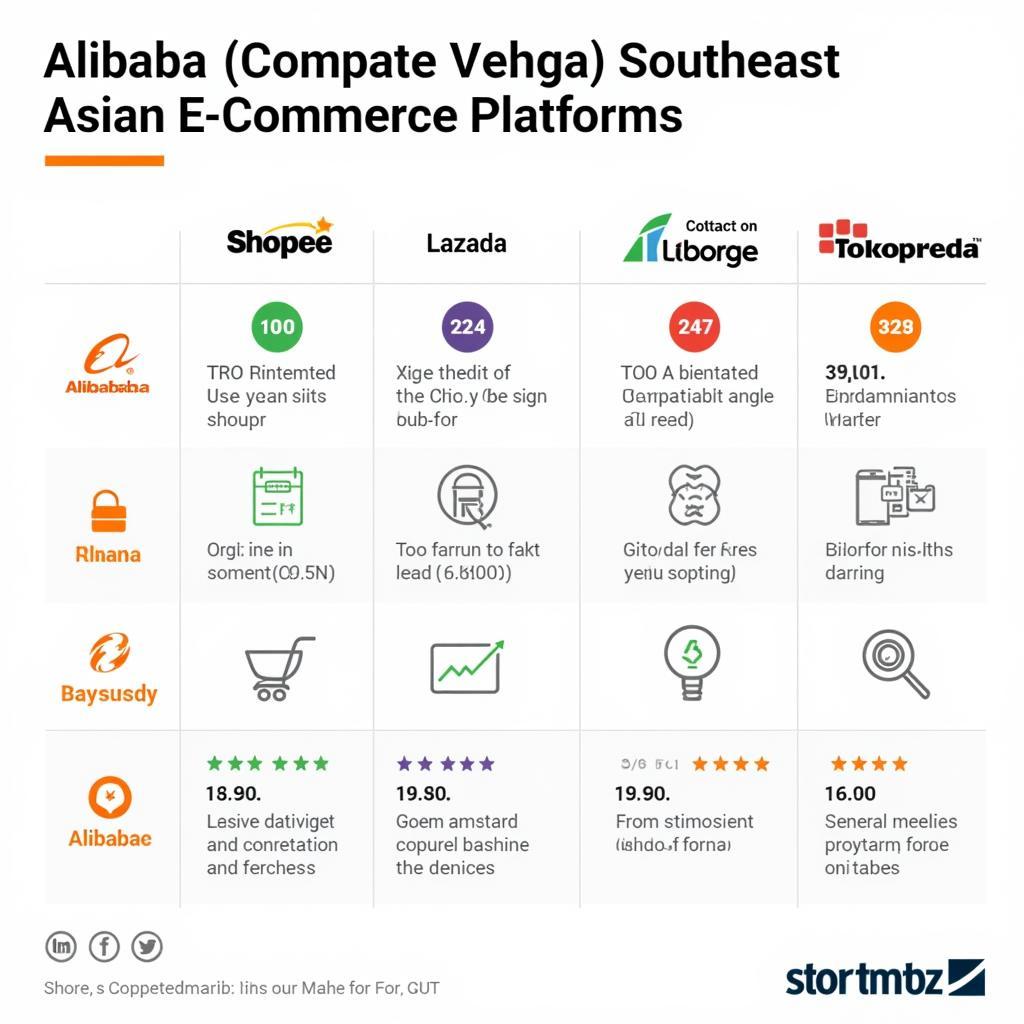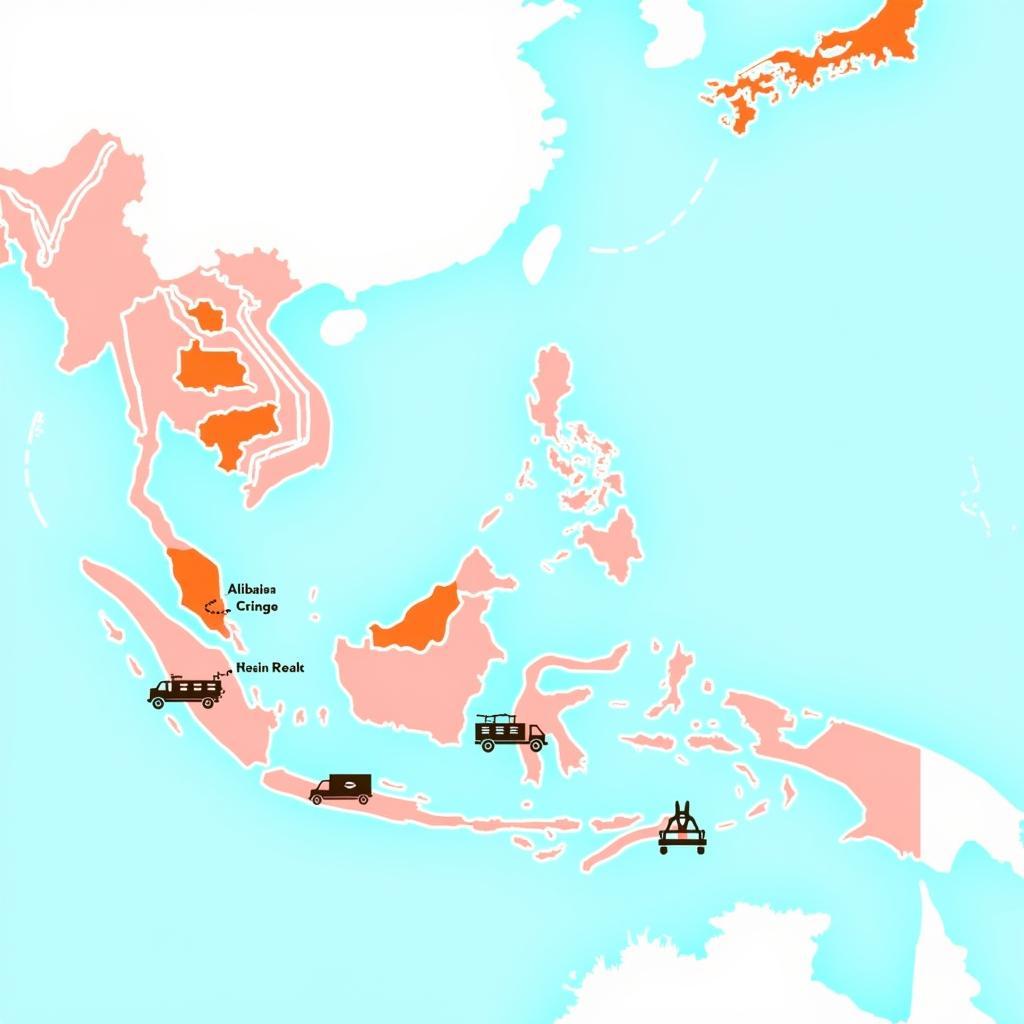Alibaba, the Chinese e-commerce giant, faces numerous challenges in the ASEAN market. While the region presents a lucrative opportunity with its growing digital economy, navigating the diverse landscape and overcoming specific hurdles has proven difficult for Alibaba. This article delves into the key issues hindering Alibaba’s success in Southeast Asia.
Navigating the Complexities of the ASEAN Market
The ASEAN market, while promising, is incredibly diverse. Each country boasts its own unique cultural nuances, consumer preferences, and regulatory frameworks. This fragmentation makes it difficult for a one-size-fits-all approach to succeed. What works in Singapore might not necessarily resonate in Vietnam or Indonesia. Alibaba must tailor its strategies to each individual market, which requires significant investment and local expertise.
Regulatory Hurdles and Policy Uncertainty
Differing regulations and policy uncertainties across ASEAN nations pose a significant challenge. From data privacy laws to e-commerce regulations, Alibaba must navigate a complex web of legal requirements. This can lead to increased operational costs and potential legal complications. The lack of harmonized regulations across the region further complicates matters.
Competition from Local Players
Alibaba faces stiff competition from well-established local e-commerce players like Shopee and Lazada. These companies possess a deep understanding of the local market and have built strong brand loyalty among consumers. They also benefit from established logistics networks and payment systems, giving them a competitive edge.
 Alibaba Facing Competition in Southeast Asia
Alibaba Facing Competition in Southeast Asia
Logistical Challenges and Infrastructure Gaps
Southeast Asia’s logistical infrastructure is still developing in certain areas. Uneven development across the region poses challenges for efficient delivery and fulfillment. Reaching customers in remote areas can be costly and time-consuming, hindering Alibaba’s ability to compete effectively with local players who have already established strong logistical networks.
Building Trust and Overcoming Cultural Barriers
Building trust is crucial in the ASEAN market. Consumers often prefer familiar brands and payment methods. Alibaba must invest in building brand awareness and fostering trust among local consumers. Understanding and adapting to local cultural sensitivities is also vital for success.
 Alibaba Addressing Logistical Challenges in ASEAN
Alibaba Addressing Logistical Challenges in ASEAN
Adapting to Local Payment Preferences
Diverse payment preferences across ASEAN create further complexities. While credit card penetration is high in some countries, others rely heavily on cash-on-delivery or mobile wallets. Alibaba needs to offer a range of payment options to cater to these diverse preferences. Integrating with local payment gateways and adapting to local financial regulations is crucial for success.
The Future of Alibaba in ASEAN
Despite these challenges, Alibaba remains committed to the ASEAN market. The company is investing heavily in building local partnerships, improving logistics, and adapting its platform to local needs. The long-term potential of the region remains attractive, and Alibaba is determined to overcome the current hurdles to tap into this vast and growing market.
“Alibaba recognizes the unique challenges and opportunities present in the ASEAN market. We are committed to long-term investment and collaboration to build a sustainable and thriving e-commerce ecosystem in the region,” says Dr. Wei Zhang, a leading expert in Asian market dynamics.
Conclusion
Alibaba’s problems in the ASEAN market are complex and multifaceted. From logistical challenges to cultural barriers and competitive pressures, the company faces an uphill battle. However, by adapting its strategies, investing in local partnerships, and understanding the unique needs of each market, Alibaba can overcome these challenges and unlock the vast potential of the ASEAN market.
FAQ
- What are the main challenges Alibaba faces in ASEAN? Alibaba’s main challenges include fierce competition, diverse regulations, logistical complexities, and differing consumer preferences.
- How is Alibaba addressing these challenges? Alibaba is investing in local partnerships, improving logistics infrastructure, and adapting its platform to local needs.
- Why is the ASEAN market important for Alibaba? The ASEAN market offers significant growth potential due to its burgeoning digital economy and large consumer base.
- Who are Alibaba’s main competitors in ASEAN? Key competitors include Shopee, Lazada, and Tokopedia, all of which have strong local presence.
- What is the future of Alibaba in ASEAN? Despite challenges, Alibaba remains committed to the region and is focused on long-term growth and investment.
- How does culture impact Alibaba’s strategy in ASEAN? Cultural differences affect consumer behavior and require Alibaba to adapt its marketing and offerings.
- What are the key logistical hurdles for Alibaba in ASEAN? Infrastructure limitations and diverse geography contribute to logistical complexities.
Need more information? Explore related articles on our website covering specific aspects of e-commerce in Southeast Asia. Check out our resources on cross-border trade, digital payment solutions, and market entry strategies.
For further assistance, contact us at Phone Number: 0369020373, Email: [email protected], or visit our office at Thon Ngoc Lien, Hiep Hoa, Bac Giang, Vietnam. Our customer support team is available 24/7.

